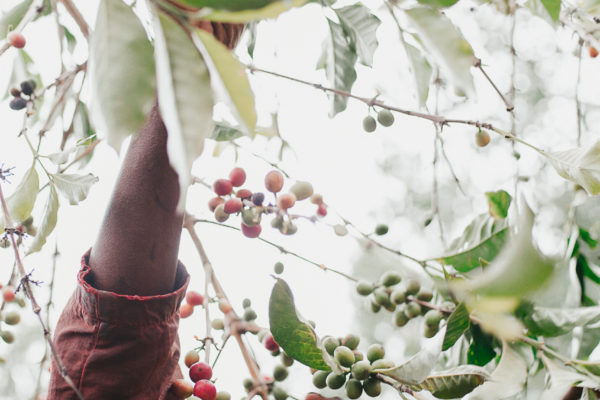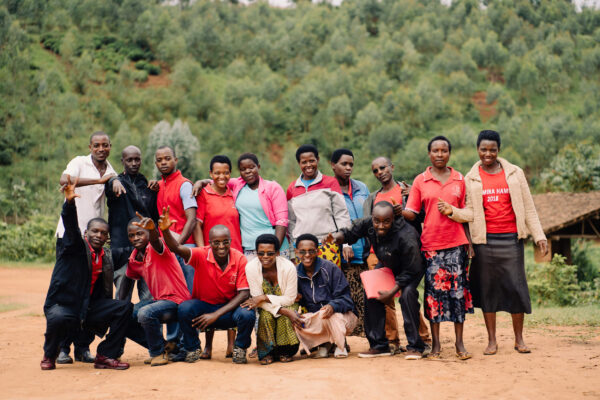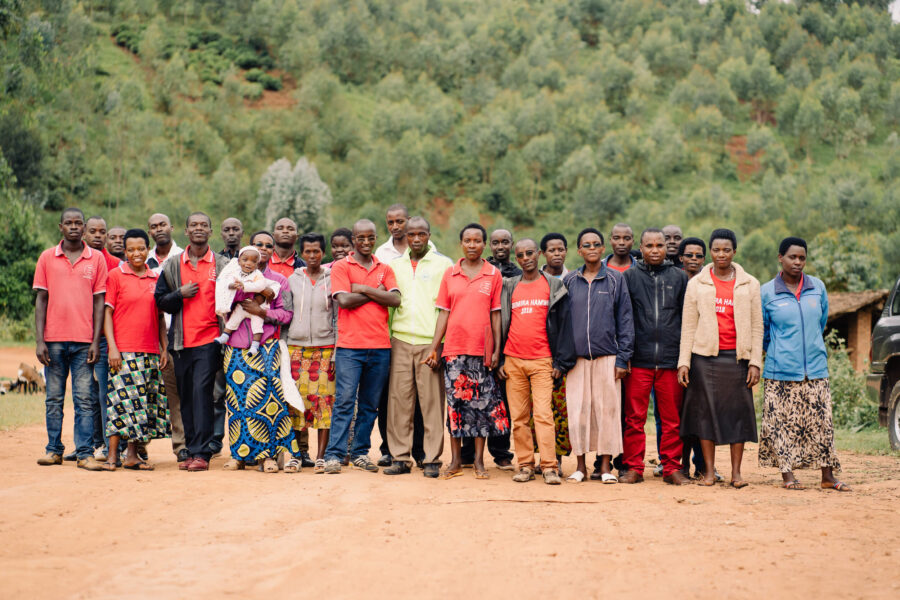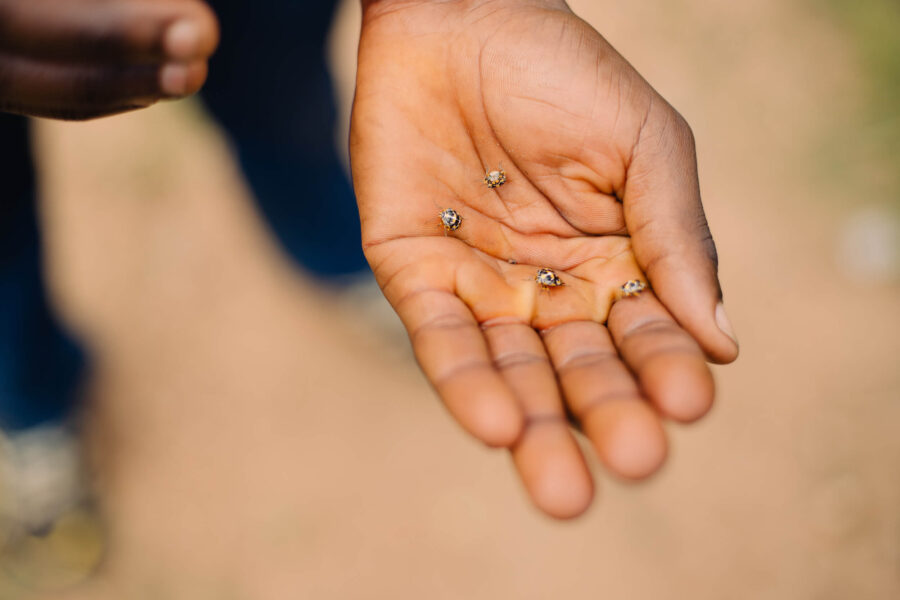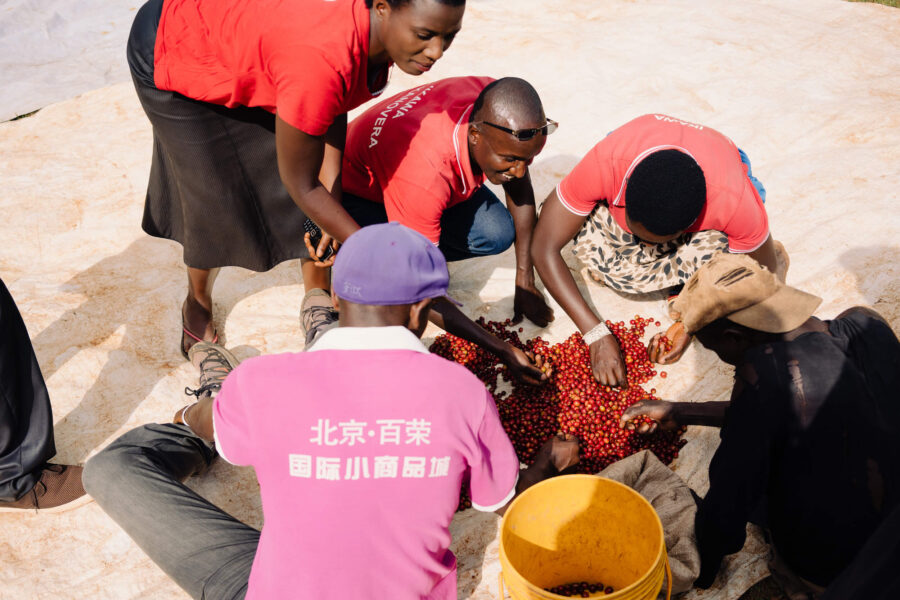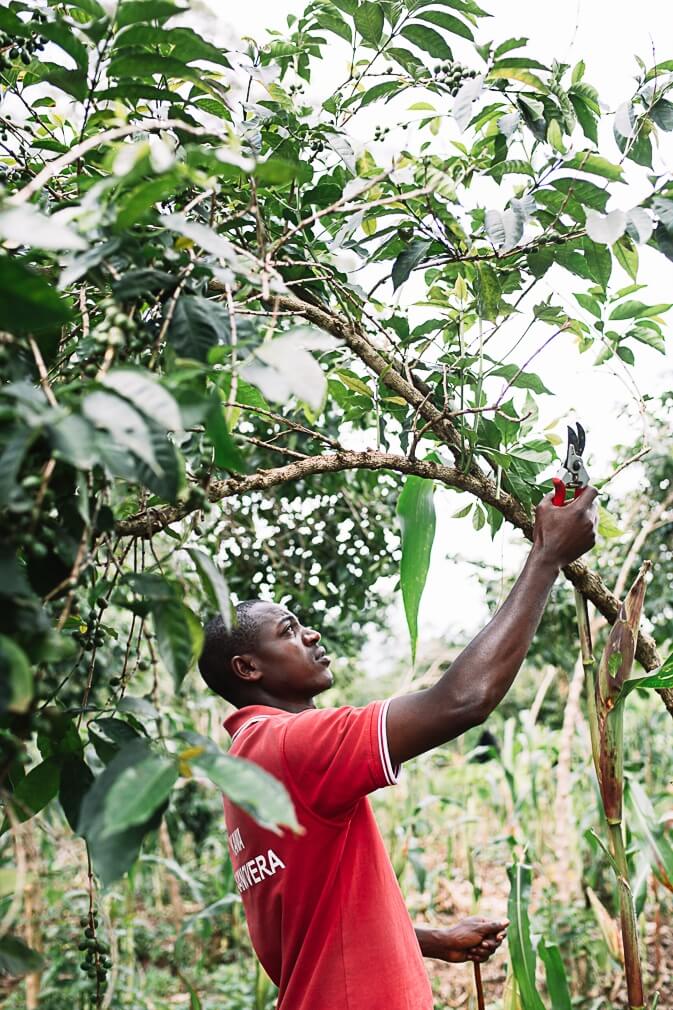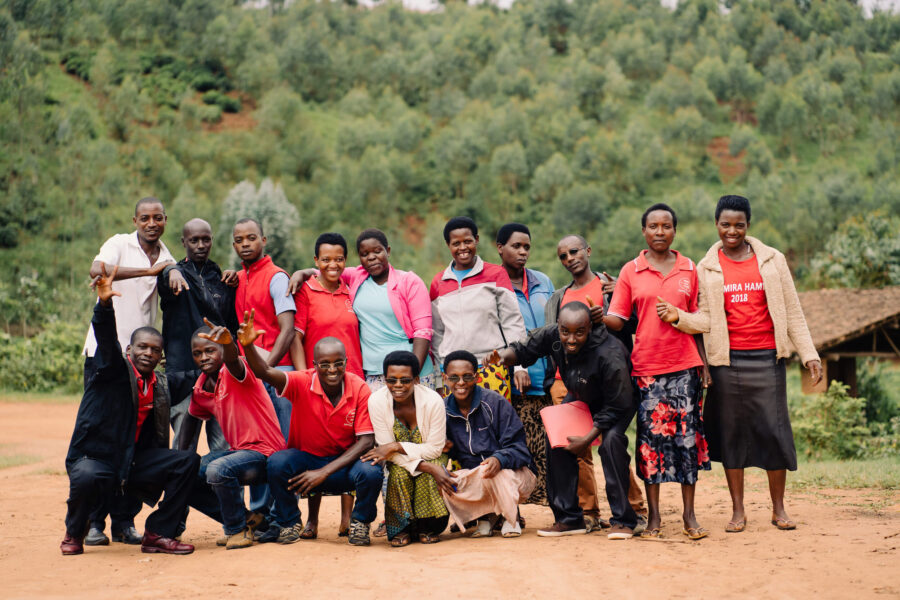
From the Farm
collected and translated by Joy Mavugo, in conjunction with Robyn-Leigh van Laren from the Long Miles Story Team
Every year, when our coffee harvest comes to an end, the Long Miles Coffee Scouts open up the “Pruning Campaign”. During this campaign, the Scouts move between the hills where coffee is grown, guiding the communities of coffee growers that we work with through the practice of pruning and stumping their coffee trees. The Scouts help these farmers to identify older or unhealthy coffee trees that should be pruned, stumped or uprooted from their farms. They also encourage farmers to weed and mulch the land where their coffee is grown to prepare the soil for the next year’s coffee harvest.
“In 2017, I pruned all of the coffee trees in one of my coffee plantations. In 2020, three years later, I picked double the amount of coffee cherry than what I used to harvest before pruning. The Scouts have helped me and the other coffee farmers in my community to understand the different ways of taking care of our coffee plantations. I remember the first time the Scouts told me about pruning and stumping older coffee trees. In my heart, I was thinking: “These young people don’t know what they’re talking about. Cutting coffee trees? No way.” Now, I am encouraging other farmers to prune and stump their coffee trees.
Firmin Niyibizi is a coffee farmer from Gaharo hill. He has two plantations and 300 coffee trees.

From the Field
written by Seth Nduwayo, Quality Control Manager for Long Miles Coffee
Our washing station that remained opened to farmers the latest closed the harvest on July 31st. Two of our stations have taken all coffee off of the drying tables this week. The station that still has some coffee on drying tables is Heza and with the end of August, at most, every coffee should be taken off the tables. We are proud of what the teams have been able to achieve. There were a lot of challenges but they have shown that they can transform them into opportunities. Briefly, in November 2019, the Government announced that they wanted to come back to operating in the coffee sector (what was interpreted as re-nationalizing the coffee industry). No one knew what had to happen next. The regulations have been made unfavorable. For example, we were obliged to have on our accounts an amount that can pay 75% of expected cherry, in advance. That money couldn’t serve in other operations except for farmers’ payment. Consequently, getting the production license was so difficult. But today we endured and have even the exportation license. I can sit and sigh, whispering to myself and say: “God fought at our side. The harvest was difficult but we made it through. Though we are not sure of the future, we hope to always stand”.
As for the dry milling activities, we are progressing well. Here, also, we have challenges (which is normal). I previously talked about delays in milling program execution, lack of space for hand picking, power outage, forklift breaking down, bag marking that is slower…each of those challenges has happened to us. However, today we are happy that we have close to a full container of hand-picked coffee and 165 bags are already taxed (grade confirmation by the national coffee board: ODECA). If everything goes smoothly, we expect to ship our first container before the end of August, which will be the first year we are able to do so.

From the Lab
written by David Stallings, Roaster Relations for Long Miles Coffee
These are very busy days in the lab. But, they have also been very encouraging days. The coffees are tasting absolutely wonderful. This week, for the first time this season, I received not only table samples in my weekly package, but also some finished, milled pre-shipment samples. Efficiency has been a huge focus this year. Specifically, efficiency surrounding the time it takes to get coffee ready for export. Between the incredible work of our team in Burundi, the execution of new (and ever-evolving) quality control systems, and the strong logistics partners we have lined up in North America, Europe, and Australia, I am very confident that this will be our best year yet from the perspective of shipment timeliness.
It has been such a pleasure to be engaged in ongoing/regular communication with so many of you about your needs for this year. If you feel that you have not been heard regarding your needs for this season, by all means, please reach out to me!
